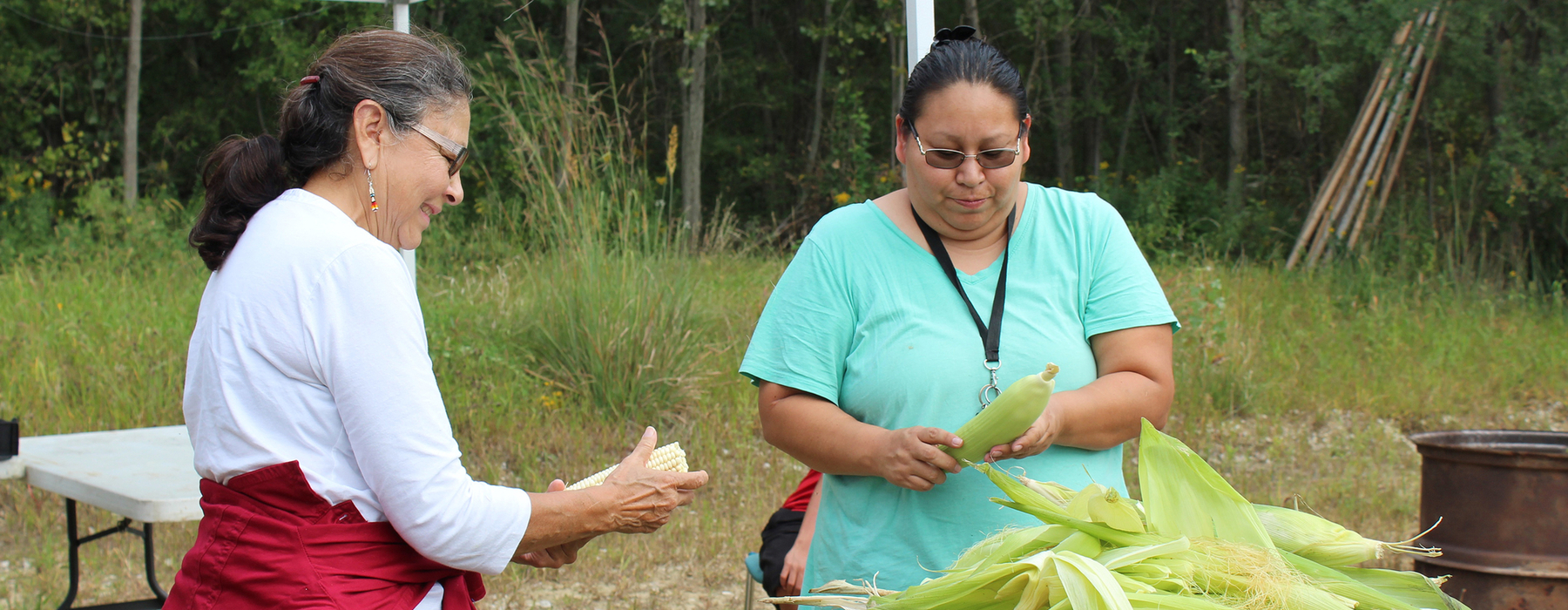The Nebraska Intertribal Food Council was created so that we can work alongside others to promote and strengthen food sovereignty efforts among our Nebraska Indigenous communities, including the Winnebago Tribe, Umonhon Tribe, Ponca Tribe, and Santee Tribe.
Quarterly meetings begin in Spring 2024, and we’ll meet both online and in-person. There is no fee to attend. For in-person meetings, we will offer an online component to accommodate those who cannot travel.
Sign up now to get more information and for details.
Mission
The Nebraska Intertribal Food Council is dedicated to uniting the Winnebago Tribe, Umonhon Tribe, Ponca Tribe, and Santee Tribe in a collaborative effort to promote and strengthen food sovereignty among our Indigenous communities. We are committed to preserving and revitalizing our traditional food systems while prioritizing education, sustainability, and cultural preservation. By harnessing the wisdom of our elders and the power of collective action, we aspire to create a thriving and resilient Indigenous food system for current and future generations.
Goals
- Foster Food Sovereignty: Our foremost goal is to empower the Winnebago Tribe, Umonhon Tribe, Ponca Tribe, and Santee Tribe to regain control over our food systems. We aim to strengthen our ability to make decisions about what we grow, harvest, and consume on our lands.
- Cultural Preservation: We strive to preserve and promote the cultural heritage of our Tribes through traditional food practices. This includes the cultivation of heirloom crops, the revival of traditional cooking methods, and the celebration of Indigenous recipes and food traditions.
- Education and Awareness: We are committed to educating our Tribal members and the broader community about the importance of food sovereignty, traditional knowledge, and the link between healthy food and well-being. Workshops, seminars, and community outreach programs will be used to achieve this goal.
- Sustainable Practices: We will work together to develop and implement sustainable farming and land management practices that respect the earth and promote ecological balance. Our goal is to ensure the long-term health of our lands and food systems.
- Community Engagement: We aim to create a strong sense of community engagement by involving Tribal members of all ages in our food sovereignty initiatives. This includes youth mentoring programs, intergenerational knowledge-sharing, and community gardens.
- Leadership by Example: We commit to leading by example, demonstrating the effectiveness of food sovereignty practices within our own Tribes. This involves establishing model food sovereignty projects that showcase the benefits of traditional food systems.
- Elder Engagement: We recognize the invaluable knowledge and wisdom held by our elders. Our goal is to actively involve elders in decision-making processes, ensuring their traditional knowledge is integrated into our food sovereignty efforts.
- Intertribal Cooperation: We will promote collaboration and cooperation not only among our four Tribes but also with other Indigenous communities in Nebraska and beyond. Sharing experiences and resources will strengthen our collective impact.
- Policy Advocacy: We will actively engage with local, state, and federal governments to advocate for policies that support Indigenous food sovereignty, land rights, and access to traditional foods.
- Sustainability and Resilience: Ultimately, our overarching goal is to build a sustainable and resilient Indigenous food system that not only meets the immediate nutritional needs of our tribes but also ensures the well-being of our communities for generations to come.
Through the Nebraska Intertribal Food Council's collective efforts and commitment to these goals, we aim to create a future where our Tribes thrive, our cultures endure, and our food systems flourish in harmony with the land.
The Center for Rural Affairs strives to nurture food systems. We offer activities to foster cultural traditions, improve diets, better health, and support families growing fruits and vegetables.


